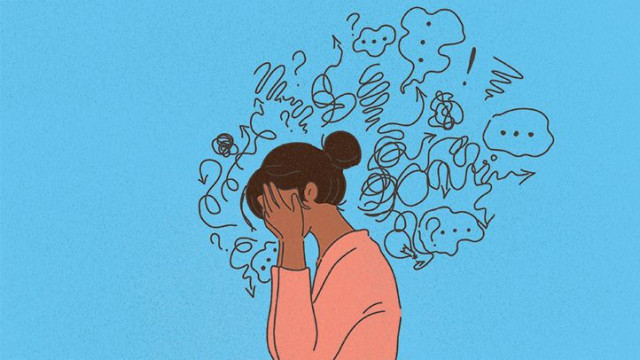Seven miraculous ways to curb social anxiety
Here's a list of small but effective ways to help you live a healthier life

For a person with social anxiety, even the most casual interactions can result in trembling, dizziness and fear of rejection. Severe social anxiety can affect your day-to-day as you find it difficult to engage in commonplace activities, such as talking to co-workers, buying groceries, eating in public, attending classes at school, going on dates among other things.
And mind you, social anxiety cannot be cured by tossing someone into a crowd or putting them in the spot. But it is achievable, according to Healthline. So here are some tips and tricks you can use to tackle or curb your social anxiety, as compiled by the outlet.
1. Seek therapy
Therapy isn’t the most affordable solution in Pakistan, but neither is any medical treatment. And social anxiety goes beyond nervousness around new people. It is a mental health condition that needs to be treated and it’s not always possible to work through symptoms of social anxiety yourself.
So a trained mental health professional can offer more insight on the difference between social anxiety and shyness, help you identify social anxiety triggers, teach helpful coping strategies, social skills, and relaxation techniques, along with offering you guidance with challenging and replacing or reframing negative thoughts.
2. Explore triggers
Social anxiety is not the same for everyone. You might feel anxious and worry about being judged, refrain from ordering food at a restaurant, leave for the restroom during a lecture, or just stay around people as long as they don’t expect you to speak up.
So start by listing situations that may make you uncomfortable. These situations may include job interviews, meetings with professors, introducing yourself to someone you’re attracted to or simply asking for help.
3. Challenge negativity
If you have social anxiety, you are bound to have a potentially negative outcome of the social situations you’ve listed. You might worry about: accidentally saying something rude or offensive, calling someone by the wrong name, tripping or spilling something on yourself, laughing, sneezing, or coughing at the wrong time and getting sick in front of other people.
But you must remember that most small social blunders go unnoticed. In fact, others might remember a time they found themselves in a similar position and offer empathy.
4. Take small steps
You don’t have to volunteer to lead a meeting or strike up a conversation with everyone you meet. Remember to take small steps like skipping the self-checkout and challenging yourself to make small talk with the cashier while grocery shopping. You may raise your hand in class to ask a question or compliment a classmate or co-worker’s outfit. You can even host a small gathering for close friends to socialize in a space you feel comfortable.
5. Role-play
How about, for all those negative outcomes you worry about, practice ways to get through them ahead of time. Role-play so you feel better prepared for things that are least-likely to happen but you worry about immensely. Ask a trusted friend to play out a situation with you and learn to react to it.
6. Try relaxation techniques
Like anxiety, social anxiety also causes overwhelming and uncomfortable physical symptoms, including sweating, a pounding heart, difficulty breathing, lightheadedness or an upset stomach. So try 4-7-8 breathing, inhale slowly through your nose for a count of four seconds, hold your breath for seven seconds and exhale slowly for a count of eight seconds.
For muscle relaxation, slowly tense each group of muscles in your body, beginning with your toes, hold the tension for a count of five seconds and slowly exhale as you release the tension. Focus on the new looseness in your muscles for a count of 10 seconds, breathing slowly, move on to the next muscle group and repeat. Regular physical activity can also help improve your mood.
7. Practice acts of kindness
During a 2015 study of 115 college students living with social anxiety, it was discovered that performing small acts of kindness for four weeks helped reduce students’ desire to avoid social situations.
Do something thoughtful like bringing a sick co-worker their favorite soup or offering to pick up your neighbour’s grocery. The person you help is far more likely to have positive feelings toward you than negative ones and earning this approval on a regular basis can help decrease your social anxiety. However, this does not mean you become a people pleaser and carry the weight of everyone else’s wellbeing, except your own. But small, un-extravagant acts of kindness go a long way.



















COMMENTS
Comments are moderated and generally will be posted if they are on-topic and not abusive.
For more information, please see our Comments FAQ